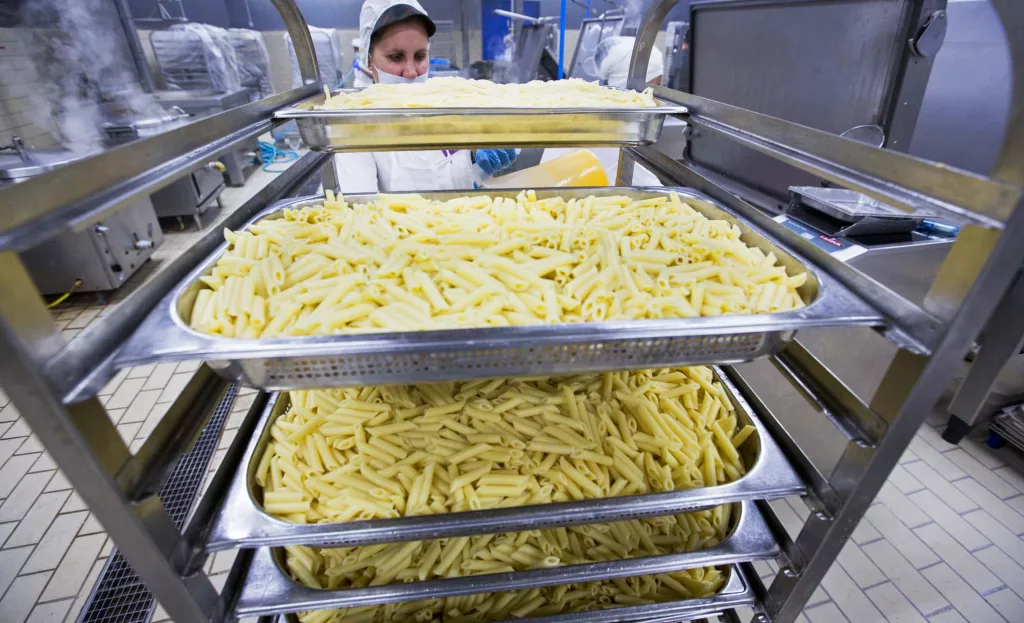Ever since Governor Rick Snyder proposed ditching privately contracted food services for Michigan prisoners, Senator John Proos of St. Joseph has been working on a way to feed them with government workers in some way that doesn’t balloon costs in the corrections budget.
Today Proos has announced that he has put together a Senate workgroup to explore training nonviolent prisoners to prepare and serve meals at Michigan Department of Corrections (DOC) facilities. It could prove to be a win on several fronts.
The governor has proposed switching from privately contracted food services back to food service provided by state workers. The governor’s plan would require the DOC to hire and train more than 350 employees by August, when the current food service contract ends.
Proos argues that, “Currently, there is a shortage of food service workers in both the private and public workforce.” As a result, he suggests, “We should look at new ideas that could reduce taxpayer costs and help provide valuable on-the-job skills to low-risk prisoners.” Proos notes, “The food service industry makes up 10-percent of all jobs in Michigan, and there are currently thousands of food service job openings throughout our state.”
According to Indeed.com, an online job-posting website, there are 18,264 food service jobs currently open in Michigan, and more than 15,300 of those jobs are listed as full-time positions.
Proos contends, “By changing the way our state prisons provide food services, we have an opportunity to train prisoners to meet workforce needs when they re-enter society, while at the same time, drastically reducing the cost to the taxpayers.”
Joining Proos on the workgroup are representatives of the Department of Corrections and the Michigan Restaurant Association as well as business leaders in the restaurant industry.
Says Proos, “Michigan’s prison population is below 40,000 for the first time in more than 20 years, which is an illustration that our efforts to reduce recidivism are working.”
Proos highlighted the Vocational Village program at the Richard A. Handlon Correctional Facility in Ionia as an example of a program in Michigan’s prisons that helps reduce recidivism by providing prisoners with useful skills.
The St. Joe Senator says, “The Vocational Village program has had a remarkable record of success with Director Heidi Washington’s leadership,” and adds, “It only makes sense to look at expanding it to food service throughout the prison system, especially considering nearly every facility already has a kitchen. We could reduce our prison costs, provide healthy meals and give prisoners a better chance at being successful upon their re-entry into society. A job is the most important factor in offender success after prison.” Stay tuned to see how it all shakes out in the weeks and months ahead.






